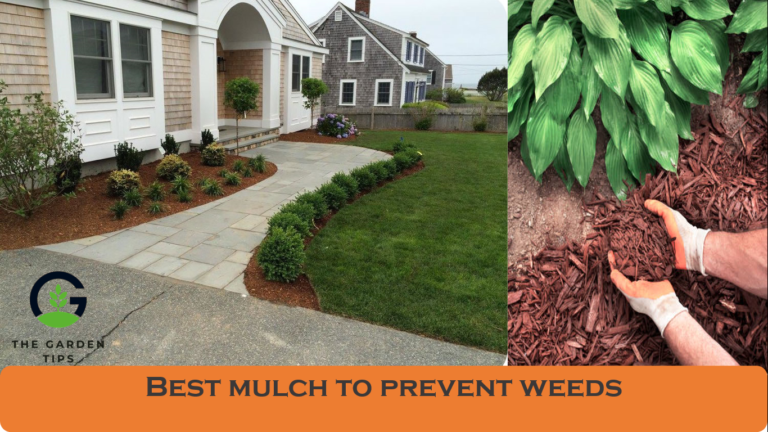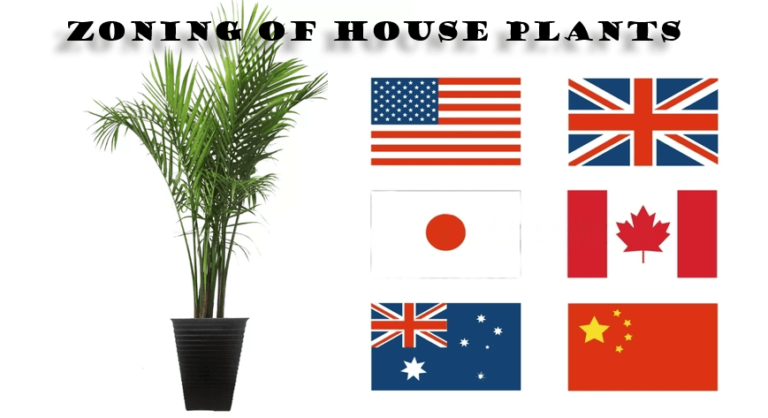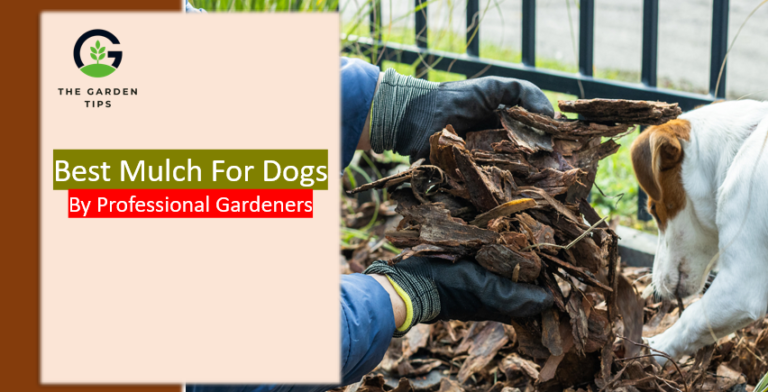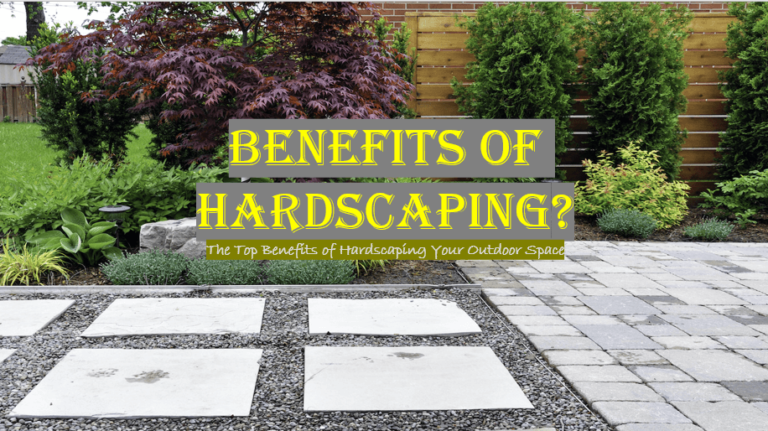Mulch is a popular landscaping material that is used to protect soil, retain moisture, and enhance the visual appeal of a garden or yard. However, many people have concerns about the possibility of attracting bugs when using mulch. In this article, we will explore whether mulch attracts bugs and what you can do to minimize any potential issues.
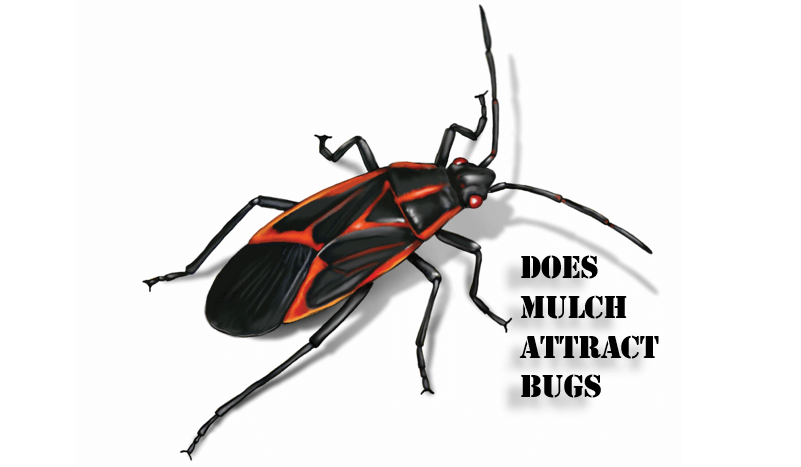
Mulch is a layer of material that is spread over soil to provide various benefits. Organic mulch materials include leaves, grass clippings, bark, and wood chips. Inorganic mulch materials include gravel, rocks, and plastic. Mulch serves as a protective barrier against weeds, helps to retain moisture, and improves soil quality by adding organic matter.
Mulch Attract Bugs
One of the concerns that people have about using mulch is that it may attract bugs. While it is true that certain types of mulch can provide a habitat for insects, not all bugs are harmful to your plants. In fact, many insects are beneficial to your garden because they help to pollinate flowers and control harmful pests.
The type of mulch you use will determine whether it attracts bugs or not. Organic mulch materials like wood chips, leaves, and bark are more likely to attract bugs than inorganic materials like rocks and plastic. This is because organic materials decompose over time, providing a food source for insects like beetles, ants, and termites.
However, just because you use organic mulch does not mean that you will automatically have an insect problem. In fact, many insects that are attracted to organic mulch are beneficial to your garden because they help to break down the mulch material and improve soil quality.
Tips for Minimizing Bug Problems
If you are concerned about attracting bugs when using mulch, there are several steps you can take to minimize the potential for insect problems.
1. Use High-Quality Mulch
One of the best ways to minimize the potential for insect problems is to use high-quality mulch. Look for mulch that has been processed and screened to remove any debris or insects. This will help to ensure that the mulch you use is free from harmful pests.
2. Use a Thin Layer of Mulch
Using a thin layer of mulch can help to minimize the potential for insect problems. A thin layer of mulch allows for better air circulation, which can help to reduce the humidity that insects thrive in. It also helps to prevent excess moisture from building up, which can attract bugs.
3. Avoid Mulching Too Close to Plants
Mulching too close to plants can create a habitat for insects. Instead, leave a small gap between the mulch and the base of your plants to discourage insects from setting up residence.
4. Monitor your garden regularly
Regular monitoring of your garden can help you identify pest problems early on. Look for signs of damage to plants, such as wilting or discoloration. If you notice a pest problem, immediately prevent it from spreading.
5. Consider using natural pest control methods
If you have a pest problem in your garden, consider using natural pest control methods instead of harsh chemicals. For example, you can use beneficial insects such as ladybugs or praying mantises to control pest populations. You can also use organic pesticides, such as neem oil or insecticidal soap, to control pests without harming beneficial insects.
FAQs
1. Does pine straw attract bugs?
Yes, pine straws can attract bugs. Pine straw is an organic mulch made from pine needles, which provide a food source and habitat for insects. However, the type of bugs attracted to pine straw may differ from those attracted to other types of organic mulch, such as wood chips or shredded leaves. Generally, insects such as centipedes, millipedes, and earwigs are attracted to pine straws. While these insects are not harmful to plants, they can be a nuisance if they enter your home or other structures.
To manage bugs attracted to pine straw, it’s important to maintain the proper depth of mulch, around 2-3 inches, and avoid piling it against structures. Regular monitoring of your garden can also help you identify pest problems early on and take action to prevent them from spreading.
2. Does hay attract bugs?
Yes, hay can attract bugs, particularly if it is wet or has started to decompose. Hay is an organic material that provides a food source and habitat for insects such as ants, beetles, and termites. Additionally, if hay is stored improperly, it can attract rodents, which can also be a problem.
To manage bugs attracted to hay, it’s important to store it in a dry, well-ventilated area. Avoid stacking hay against structures or in areas where it can collect moisture, leading to mold or decay. Regularly inspecting hay bales for signs of pest infestations and promptly removing any affected bales can also help to prevent the spread of pests.
3. Does pine bark mulch attract termites?
Yes, pine bark mulch can attract termites. Termites are attracted to the cellulose in wood, and pine bark mulch is made from pine trees containing cellulose. However, the risk of termites infesting pine bark mulch is relatively low compared to using untreated wood as mulch.
To minimize the risk of termites infesting pine bark mulch, using only high-quality, treated mulch that has been properly aged and stored is important. Avoid piling mulch against structures or allowing it to come into direct contact with wooden structures. Regular monitoring of your garden for signs of termite activity, such as mud tubes or termite wings, can also help to identify any infestations early on and prevent further damage.
Final Words
Mulch can attract bugs, but you can keep your garden pest-free with the right management. Choosing the right type of mulch, maintaining the right depth, avoiding piling mulch against structures, regular monitoring, and natural pest control methods can help keep your garden healthy and thriving. By understanding the relationship between mulch and bugs and taking proactive steps to manage them, you can enjoy the benefits of mulch without worrying about pests.


